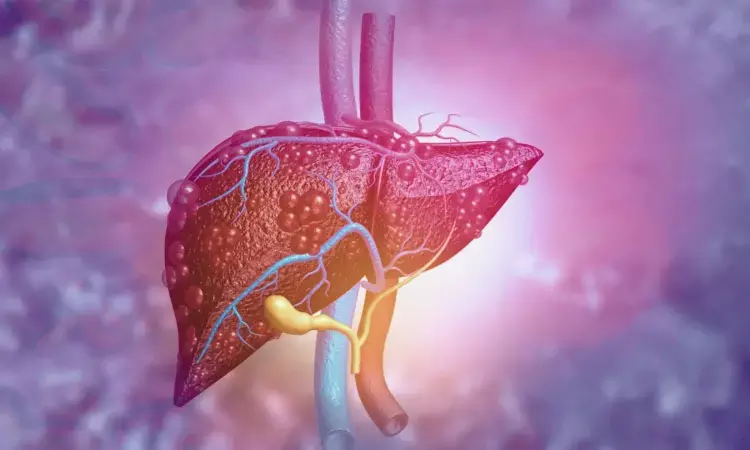- Home
- Medical news & Guidelines
- Anesthesiology
- Cardiology and CTVS
- Critical Care
- Dentistry
- Dermatology
- Diabetes and Endocrinology
- ENT
- Gastroenterology
- Medicine
- Nephrology
- Neurology
- Obstretics-Gynaecology
- Oncology
- Ophthalmology
- Orthopaedics
- Pediatrics-Neonatology
- Psychiatry
- Pulmonology
- Radiology
- Surgery
- Urology
- Laboratory Medicine
- Diet
- Nursing
- Paramedical
- Physiotherapy
- Health news
- Fact Check
- Bone Health Fact Check
- Brain Health Fact Check
- Cancer Related Fact Check
- Child Care Fact Check
- Dental and oral health fact check
- Diabetes and metabolic health fact check
- Diet and Nutrition Fact Check
- Eye and ENT Care Fact Check
- Fitness fact check
- Gut health fact check
- Heart health fact check
- Kidney health fact check
- Medical education fact check
- Men's health fact check
- Respiratory fact check
- Skin and hair care fact check
- Vaccine and Immunization fact check
- Women's health fact check
- AYUSH
- State News
- Andaman and Nicobar Islands
- Andhra Pradesh
- Arunachal Pradesh
- Assam
- Bihar
- Chandigarh
- Chattisgarh
- Dadra and Nagar Haveli
- Daman and Diu
- Delhi
- Goa
- Gujarat
- Haryana
- Himachal Pradesh
- Jammu & Kashmir
- Jharkhand
- Karnataka
- Kerala
- Ladakh
- Lakshadweep
- Madhya Pradesh
- Maharashtra
- Manipur
- Meghalaya
- Mizoram
- Nagaland
- Odisha
- Puducherry
- Punjab
- Rajasthan
- Sikkim
- Tamil Nadu
- Telangana
- Tripura
- Uttar Pradesh
- Uttrakhand
- West Bengal
- Medical Education
- Industry
High-Sensitivity Troponins May Help Identify MASLD Patients at Greater Risk of Death: Study Finds

USA: A new long-term study has highlighted the potential value of high-sensitivity troponins (hs-troponin T and I) in predicting mortality among individuals with metabolic dysfunction-associated steatotic liver disease (MASLD), previously known as non-alcoholic fatty liver disease (NAFLD).
In their findings published in Alimentary Pharmacology & Therapeutics, the researchers reported that elevated levels of high-sensitivity cardiac biomarkers were significantly linked to an increased risk of both all-cause and cardiovascular-specific mortality, even among individuals without a known history of cardiovascular disease. They noted that each one-standard-deviation increase in hs-troponin T levels corresponded to a 29% rise in overall mortality and a 44% increase in cardiovascular-related deaths, with similar trends observed for hs-troponin I levels.
Understanding the phenotypic characteristics of individuals with MASLD is crucial for identifying those at heightened risk of adverse outcomes. Given that high-sensitivity troponin (hs-troponin) serves as a strong predictor of future cardiovascular events, Donghee Kim, Division of Gastroenterology and Hepatology, Stanford University School of Medicine, Stanford, California, USA, and colleagues aimed to explore its association with all-cause and cause-specific mortality in individuals with MASLD who had no prior history of cardiovascular disease. They suggest that this approach could help pinpoint vulnerable subpopulations within the MASLD group and improve risk stratification efforts.
For this purpose, the researchers utilized data from the National Health and Nutrition Examination Survey (NHANES) spanning 1999 to 2004 and linking it to mortality records through 2019. They employed Cox regression models to examine how high-sensitivity troponin levels were associated with all-cause and cause-specific mortality in individuals diagnosed with MASLD who had no history of cardiovascular disease.
The study led to the following findings:
- Over a median follow-up of 17.5 years, individuals with MASLD and elevated hs-troponin T levels showed a progressively higher risk of both all-cause and cardiovascular-related death.
- These associations remained significant even after accounting for various demographic, clinical, lifestyle, and metabolic factors.
- Each one-standard deviation increase in hs-troponin T levels was linked to a 29% rise in all-cause mortality (HR: 1.29).
- The same increase was associated with a 44% rise in cardiovascular mortality (HR: 1.44).
- There was a similar trend between hs-troponin I levels and cardiovascular mortality across three different assays.
- There was no significant link between hs-troponin levels and cancer-related mortality.
"Screening for high-sensitivity troponin T or I in individuals with MASLD may help pinpoint subgroups at greater risk of future mortality, particularly from cardiovascular causes—even in those without a prior diagnosis of cardiovascular disease. This approach could support earlier identification and targeted intervention in high-risk patients," the authors concluded.
Reference:
Kim, D., Danpanichkul, P., Wijarnpreecha, K., Cholankeril, G., & Ahmed, A. Association of High-Sensitivity Troponins in Metabolic Dysfunction-Associated Steatotic Liver Disease With All-Cause and Cause-Specific Mortality. Alimentary Pharmacology & Therapeutics. https://doi.org/10.1111/apt.70128
Dr Kamal Kant Kohli-MBBS, DTCD- a chest specialist with more than 30 years of practice and a flair for writing clinical articles, Dr Kamal Kant Kohli joined Medical Dialogues as a Chief Editor of Medical News. Besides writing articles, as an editor, he proofreads and verifies all the medical content published on Medical Dialogues including those coming from journals, studies,medical conferences,guidelines etc. Email: drkohli@medicaldialogues.in. Contact no. 011-43720751


